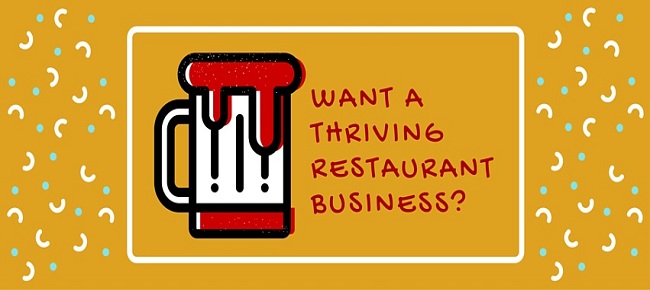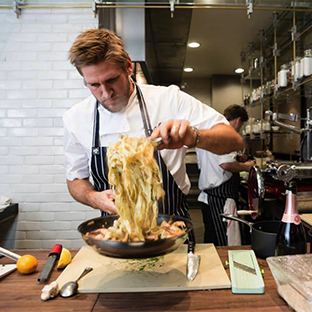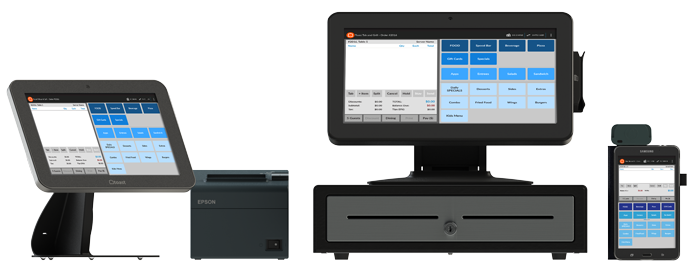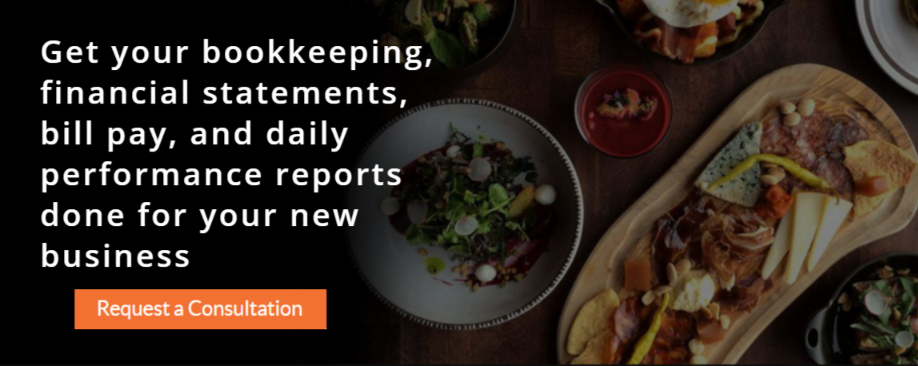
Restaurant accounting has its own set of rules and peculiarities. You can have decades of experience in the front and back house of a restaurant, from general manager to head chef, and still not be a restaurant accounting expert. Where to begin? How do you even read a profit and loss statement?
What Makes Restaurant Accounting Distinctive?
A lot of the understanding is the language that makes it so different than other accounting other industries. I had a call with a potential client restaurant owner last week and he got the feeling that I am familiar with and speak the so-called language of hospitality finance.

Essentially the language of restaurant accounting makes the restaurant accounting language so different. To be good accountants for restaurants, you must have extensive knowledge of how a restaurant works. As an example, it’s a common bookkeeping practice for companies to keep double entry bookkeeping with debits and credits. This is not the unique part; what is different here is how all the line items that are pertinent on a P&L, income statement or a balance sheet report affect restaurant reporting. What is most important to know are the key factors that can directly impact the success of a restaurant.
What are the Pros and Cons of Outsourced Restaurant Bookkeeping Compared to Hiring In-house?
At Bookkeeping Chef we are a little biased, but more and more New York City restaurant operators are beginning to outsource their payroll, bookkeeping and accounting functions.
By outsourcing such tasks, you already have a trained team. This also eliminates turnover. You don’t have to manage or train anyone. Costs are a lot lower because there are fewer employee benefits, healthcare and payroll costs…etc. The average salary of a full-time bookkeeper is around $39,090. The following items must also be considered:
- Payroll taxes $4.100
- Disability $360
- Healthcare $4,100
- Vacation/Sick Days
- Placing Ads
- Screening Interviews,
- Testing and Training of Employees
- Extra Overhead Costs
In leasing commercial space for a restaurant, square footage is extremely valuable. You also do not have to purchase computers and equipment. Outsourced restaurant accounting firms already have years of experience and can provide comparative data. Maybe one “con” to outsourcing bookkeeping is some owners really having a person sitting next to them or close by that he or she speak with easily. This person can go right to the bookkeeper and have him sign a check or answer a question right away. And smaller restaurants like to handle their own bookkeeping, but there are plenty of outsourced hospitality accountants that do it reliably.
3 Key Restaurant Accounting Tips and Suggestions
1 Prime Costs Should be Reviewed on a Weekly or at Least Monthly Basis Prime costs are the numbers needed to know your margin of profit after overhead and inventory. What goes into Prime Cost? Food, beverage, and labor are the three largest expenses that a restaurant has because they include all of the food and beverage ingredients, payroll costs, salaries and wages, taxes and benefits. Labor costs are typically the second-highest cost in the food service industry, after food and beverage costs. Keeping labor costs under control is one of the most important factors of a restaurant’s profitability. These need to monitored closely each week. A POS system is also a good way to keep track of these reports.
2 Keep a Chart of Accounts Personalized and Simple
A chart of accounts is made up of different accounts and line items that make up a general ledger. I’ve seen way too many people over-complicating the chart. Don’t take a generic general ledger template and call it your own. It’s important to personalize it for your restaurant line by line.
3 Reconcile all of your Balance Sheet Accounts Before Looking at your Profit & Loss Statements
Your balance sheet accounts list assets and liabilities. This is one most important financial statements for a company. The profit and loss statement allows a CPA or restaurant owner to understand net profits or losses at the end of the month. There are some people that want to go straight to the bottom line on the P&L, but the net income on the P&L is a result of making sure all the numbers before it on the balance sheet are accurate.
What are Some of the Biggest Mistakes We See with Restaurant Accounting?
Businesses Not Doing Any Accounting at All
Some smaller restaurants which become our clients have not done much bookkeeping except the bare minimum; they may pay their bills and staff but that’s it. This is not good for growing your restaurant because onlookers have no idea what going on with the financial health of the business.
Businesses Not Reviewing their Profit & Loss Statement in a Timely Manner
We have some restaurant clients who have never read a P&L statement before hiring us, or they will check it only months later. And, at that point, it’s far too late to make changes or figure what happened.
Making the Chart of Accounts Too Complicated
As we mentioned before, using too many line items that do not specifically apply to a restaurant business make it hard to stay organized. We once had a client who had a line item for the little butter packets you put on bread. That maybe getting a little too detailed. If you are in the butter business maybe, but if you own a coffee shop that is a bit much!
A Few Other Factors for Successful Restaurant Accounting

Talk to Other Owners in your Industry
Sometimes it will be negative, and other times it will be positive. Share your struggles and wins. Join a restaurant management group like restaurantowner.com, and learn what is working in the group’s restaurants and what owners are having problems with. Apply what you learn to your own restaurant business.
Find Time to Speak with your Bookkeeper Outside of the Restaurant
Doesn’t matter if your bookkeeper is in-house or outsourced, talk to this person outside of your restaurant. Restaurant owners and managers are so busy and they get used to jumping up to greet a customer, handle an issue or take a phone call.
Be Honest and Open About Your Finances
If you don’t know what a P&L is or a prime cost summary is, just say so. Have your bookkeeper or accountant go over everything from A-Z with you in length. It’s important to always start where you are, and in order to do that, you have to honest about what you are doing properly and what needs to be improved. As an example, if you have commingled or mixed personal finances with your business, or have been paying cooks under the table, you will want to be honest with your accountant so he can help you fix it.
Also for example, if you have mixed personal finances with business or have paid employees under the table, you want to be honest so your accountant can help you fix it.
Benefits that a POS System Brings to Restaurant Accounting
 The primary source of all revenue and all cash. Bookkeepers want everything to go through your POS system as much as possible so that nothing slips through the cracks.
The primary source of all revenue and all cash. Bookkeepers want everything to go through your POS system as much as possible so that nothing slips through the cracks.- Keeps accounting organized. When everything is mapped correctly, the POS is hugely helpful in keeping accounting organized. The first step of setting up the system properly is so important.
- Makes it easier to reconcile cash. For example, you’re able to run petty cash through a POS rather than having them on scraps of paper stuck in the safe. It’s easier to track the expenses.
- Credit card reconciliation is simpler. It’s our job as bookkeepers to make sure the money actually goes into the bank. I think this is what Toast does extraordinarily well.
- A strong hosted online portal makes access easy. Having a hosted portal is phenomenal, bookkeepers don’t have to deal with scanned copies of reports, they have direct access.
The Right Cloud Accounting Software Can Help you Manage Revenue, Losses and Inventory

Running a restaurant is one of the toughest jobs ever. Bookkeeping Chef is the one-stop-shop hub for the entire back office. Historically a business owner needs to choose a software platform, find a bookkeeper and a separate CPA for their taxes. Bookkeeping Chef eliminates this friction and allows restaurant operators to easily manage their finances from a single hub.
Meet your dedicated back office team today and operate your restaurant smarter tomorrow.

